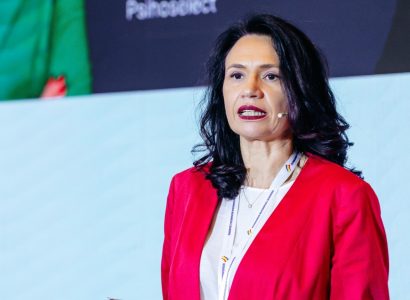Most of us probably have in mind the affirmations from our childhoods, being told that a better education means having more success, and for the longest time, that seemed to be an incontestable truth. After the revolution of 1989, we started seeing, thought the models presented in the public space and by the people around us, that having a good education was not what differentiated you. Also, having money did not correlate at all with the level of the degree. Therefore, keeping the motivation to study was an inner fight for most young people.
But how are things now? In Romania? In other countries? Let’s look around us, Europe and the USA.
In rich countries, the relationship between education and earnings followed a simple rule: get as much formal education, as early in life as possible, and big earnings will be ensured for the rest of your career. But things don’t look like that anymore. In the USA, between the year 1981 and 2001, the average income of the employee with a higher degree has increased by 31%, while the income of the high school graduate has stayed the same. In the next 12 years, things have not been the same, as the income of the college graduates has decreased more than the one of high school graduates.
Is there the same demand on the work market or has something changed? We feel it too. We have recruiting processes only for jobs requiring a higher degree, but the demands seem to be different, including the requested competencies, and they don’t look like those we had 10 or 15 years ago. Part of the competencies offered by higher degrees have moved to the jobs requiring medium studies.
But what has happened to the competencies for the positions that required medium studies? Did some jobs disappear as the level of automatization grew? Not necessarily. Automatization has mostly affected part of a job’s tasks, but not the entire job. For example, introducing barcodes or ATM payment did not cause the number of supermarket cashiers to drop.
A study realized by MIT, coordinated by Pascula Restrepo, showcases that after the financial crisis of 2007-2008 things had gotten worse.
Moreover, between 2007-2015 the number of positions involving routine activity, that do not require abilities had dropped by 55% compared to other jobs.
There are also ‘hybrid jobs’ – ‘coding’ abilities are no longer specific to the IT domain. We see jobs that require ‘coding skills’, so the demand for data analysts or digital marketers has grown in the USA by 372%.
Ok, we feel like we need new competencies and the demands of the work market are leading us in that direction, but the work force does not yet have those abilities. We need to be aware of the fact that the acquisition of skills has to be a permanent process, and the redefinition of jobs does not stop (skill & reskill). To remain competitive, the economies should offer education that focuses on the development of skills, throughout the entire period. What can we do? At this level, we lack a national education strategy. Let’s go back to what we can decide and influence.
This is the reason why I am writing this article with the message: Overlap them with the area in which you wish to develop and take action. We have open positions with generous salary offers, yet the candidate pool is too low. When you can’t find the candidates with the necessary skills, you start to lower the requirements, but also the budget allocated to the position.
It is the time when the decision to improve their skills and effort of the engineer, economist, manager and freelancer intervene. The companies take responsibility for that, but in the direction of the company’s development. If you, as a member of the logistics team, want to move to a hybrid job which combines logistics and implanting new software tools, but your company does not go towards that direction, don’t wait! Take your destiny in your own hands and look for the best provider for the development of these competencies.
What alternatives do you have?

Know that your education providers are everywhere in the world. Search for online courses or micro-certifications offered by colleges or online platforms from all around the world. Even collages nowadays are much more oriented towards online and modular learning.
Massive Open Online Courses (MOOC) – you can find them online, charged with a lot of information and the content is very accessible. The certifications are divided into modules, the modules into courses and the courses into segments. MOOCs have identified what optimization means that the students finish their certification. An online video takes on average 6 minutes and a 4 weeks long course. Premium experience is represented by face to face interaction, let’s not forget that!
Who does the online environment attract? It attracts those who want new skills and a job. Online platform report an age average of 34 years, while universities recruit students of 20 years.
We need micro-certifications (micro-credentials) defined as those courses that develop specific skills. We can mention the ‘Front-end web development’ course, but also ‘How to efficiently lead business meetings’.
Another necessary ability in finding and keeping a job is constant learning. Technology brings important, sometimes surprising changes in our lives. Some jobs take the ‘hybrid’ form, therefore our ability to develop new skills will make the difference.
Where do we differentiate when we are in competition with robots or technology?
‘Social skills’, as David Deming from the Harvard University says. These will make the difference, and the jobs requiring them will grow in number. Considering that the number of freelancers will grow (in the USA it had grown from 10% to 15% in 2015) those employees who will know to keep a good relationship and cohesion with their colleagues, those who will know how to efficiently share tasks will form more productive teams.

In the end, I offer you two sources to which you can turn to for further skill development:
In the link below you can find an organization of online courses based on themes and the providers and of those with great reputation.
https://qz.com/1120344/200-universities-just-launched-600-free-online-courses-heres-the-full-list/
You can choose:
3D Models for Virtual Reality from University of London International Programmes
The Climate-Energy Challenge from Harvard University
Long-term Financial Management from University System of Maryland.
Set the direction in which you want to go, regarding your professional and financial development.
Another valuable source is the online platform developed after the collaboration between The University of Harvard and MIT (Massachusetts Institute of Technology).
The link: https://www.edx.org/
The screenshot below shows you the categories of courses and what universities contribute to the platform.

So, now that we have resources, we need an education plan. MIT conducted a series of interdisciplinary studies using an online platform created in partnership with Harvard. Testing has helped them identity the fact that the percentage of course finalization was growing by 29% when the students were required to create a course process plan. A small trick that helps us to finalize what we start, to be ‘efficient learners’.
If in the following months, your CV will include new skills, which will make you feel like you are better, more confident that you can easily answer questions when you are having an interview for the jo you want. If all this happens, it means I have contributed a little to your well-being. And that makes me happy.
I believe that we have to take decisions for ourselves, to take action and implicitly, to strongly influence the level of education in Romania.
P.S. 1 If you think the message of this article could help a person close to you, share it, it can be a source of inspiration and a resource of information.
P.S. 2 Let us not forget, Romania is doing this well when it comes to IT experts because of the independence from the formal education system (replaced by Oracle, Microsoft certifications), but also because of these people’s wish of earning a lot of money
P.S. 3 Mark Zuckerberg – he sets new goals every year, in terms of personal development. Even he, does not stop!
Kind regards,
Claudia








